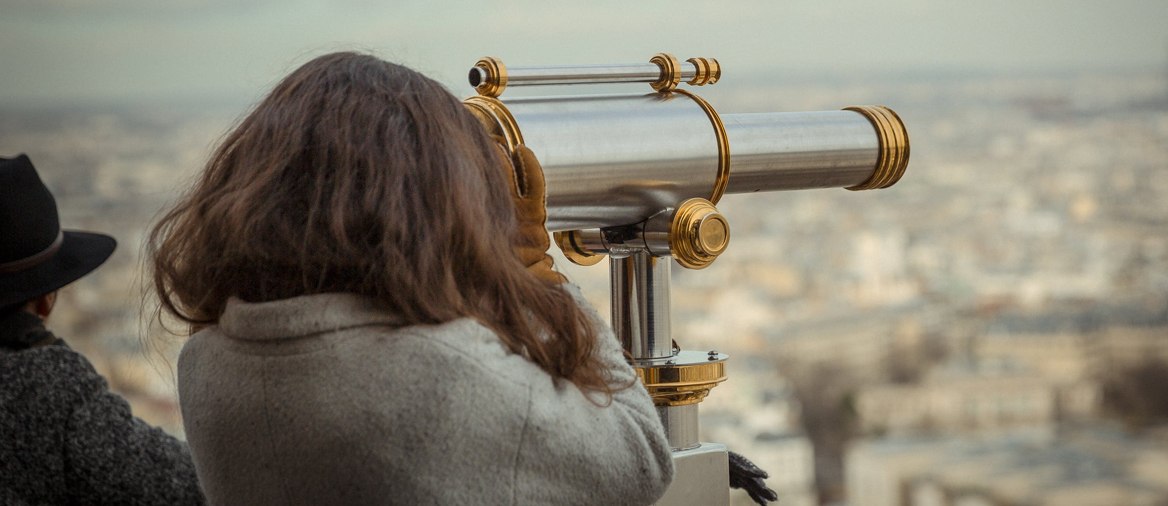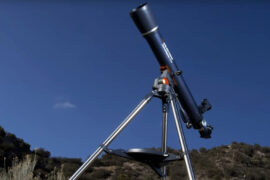As parents, it can be frustrating to show children options for hobbies that will benefit them long-term. It is so easy for them to spend hours on Fortnite or whatever game is on vogue at the moment. But that doesn’t help them improve their learning skills. While videogames are fun, they need other hobbies too.
The status of STEM education in the U.S. is bleak at the moment. More than 60% of fourth-graders are not proficient in science and math. Kids aren’t learning essential skills.
Research has shown links between early STEM instruction and language learning. Kids who learn science and math early on, develop skills that will serve them for life.
Astronomy is one of the most fun sciences for children. It can be an introduction to many other fields like chemistry, geology, and physics. On top of that, there’s a mythological, fantastic and historical aspect to it.
It is also one of the most visually attractive fields. The sheer size of the universe sparks the imagination. So how do you manage to get your children interested in astronomy without imposing it on them? Well, we have some tested tips to help you with that.
Remember that you are only trying to show them options. Your job is only to introduce them to things they might be interested in, not push them to learn it. We are going for subtlety here.
Here are some tips that will help you get them interested in astronomy.
Make some crafts and art
Here’s an easy one that not only will get them into astronomy but will also help you spend quality time with them.
There are many astronomy arts and crafts projects that you can start with things you have laying around the house.
One idea to start with is painting and drawing. If you have some unused canvas, try painting the Solar System or a Galaxy together. Pencil and paper can be just as good if you don’t have any art supplies laying around. Another option is to go digital with and get drawing with an iPad. The point is that you spend some time together creating something, having fun, and bonding. Astronomy will just be the subject of your art.
A crafts project can also be a great way to spend time with your kids and create something cool. Here’s a great list of 20 projects you can try to get you started. You don’t need to be an artist for most of this. All you need to do is try your best.
If art is not your thing, not everything is lost. Getting a space-themed puzzle or a Lego set can have similar results. You can get one that is a bit complex. The point is that you will be building it together so you don’t need to worry about buying one the can build by themselves. This way you can both enjoy the experience.
Play a board game
Board games have seen a resurgence in recent years as people are looking for ways to interact with each other without a screen.
There is a board game for everyone. From casual party games to the hardcore 100-hour long campaign type. There are also games that focus on many subjects, and thankfully space is a very popular topic.
We have played many space board games on the site and came up with a list of our favorites. Try one of those and plan a family night when you are all available.
Visit a planetarium in your next vacation
Planetariums are a great way to spend an afternoon with the family and learn something new in the process. They have activities, movies, and talks anyone can enjoy. Some even have astronomy clubs or night events where they will let you borrow a telescope and guide you.
The interactiveness of the experience is key and will pique the curiosity of the little ones.
The only problem is that unless you live in a big city, your local planetarium might not be that great. This is why we recommend that you wait until your next visit to one of the cities where the big planetariums are located. It will be worth the wait.
My favorite planetarium in the world is in Valencia, Spain. But if you don’t want to go halfway across the world to visit, there are some great options in New York, San Francisco, Washington, and Chicago.
Here’s a great article with some of the best planetariums in the world. It contains a list of the most important planetariums in the U.S. and some that are overseas.
Go camping with a telescope
One of the greatest things about astronomy is also one of the simplest. Just look up at the sky and try to figure out what is it that you are looking at.
The problem with that the bigger our cities get, the fewer stars we can see in the sky. This is due to an effect called light pollution where the city lights overpower the light coming from the stars.
Going camping to a remote (or at least less-populated) location will increase the number of stars you see in the sky. You can maximize the experience by bringing a telescope with you.
Most hobbyist type telescopes are small and light enough to bring camping. One of those should be enough to locate the visible planets, nebulas, and constellations.
You could also try some astrophotography if you know your way around a camera.
If you don’t have a telescope you do not need to spend right away on getting one.
There are places where you can rent one. Another option is to ask a friend to borrow theirs.
Flip through an art book
Most astronomers would agree the love for this hobby starts visually. It is hard for our human brains to imagine what a galaxy looks like from reading about it. But take a look at one of the Hubble photos and voila, you are hooked.
This is why if you want to learn astronomy using books, it is preferable to start with one that has many visual elements. The ones with a lot of words and complex concepts can wait for later.
Go with either a photography book or one with a lot of artwork. There are some great astronomy books made by incredible illustrators and astrophotographers.
Which book is the best for your children will depend on their age. Here’s a great article with book recommendations for all the age ranges. You should be able to find something one that works for you there.
Sign them up for space camp
This is the most “extreme” item on the list and definitely the most expensive one. Save this one for children who have already shown interest in diving deep into astronomy.
Space Camp is an educational 6-day camp in Hunstville, Alabama. It was founded in 1982 on the grounds of the U.S. Space & Rocket Center. In their own words, the camp is: “the ultimate educational experience that illuminates real-world applications of science, technology, engineering, and mathematics”.
Kids get to suit up in astronaut-like gear, train for missions and experience how mission control works. It is an amazing experience for them. Many of the students that go through the program decide to go into science as a career.
A similar program is run directly by NASA in Florida in the Kennedy Space Center.
The camp dates run from spring to summer and you usually have to book very early on as the seats are limited.
There is also a weekend 3-day adult program for adults in case you want to tag-along with your children.







